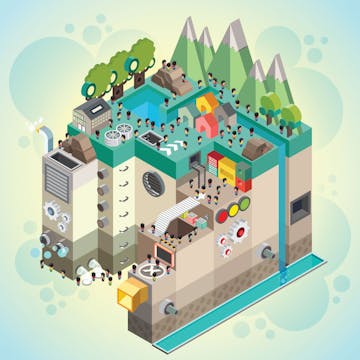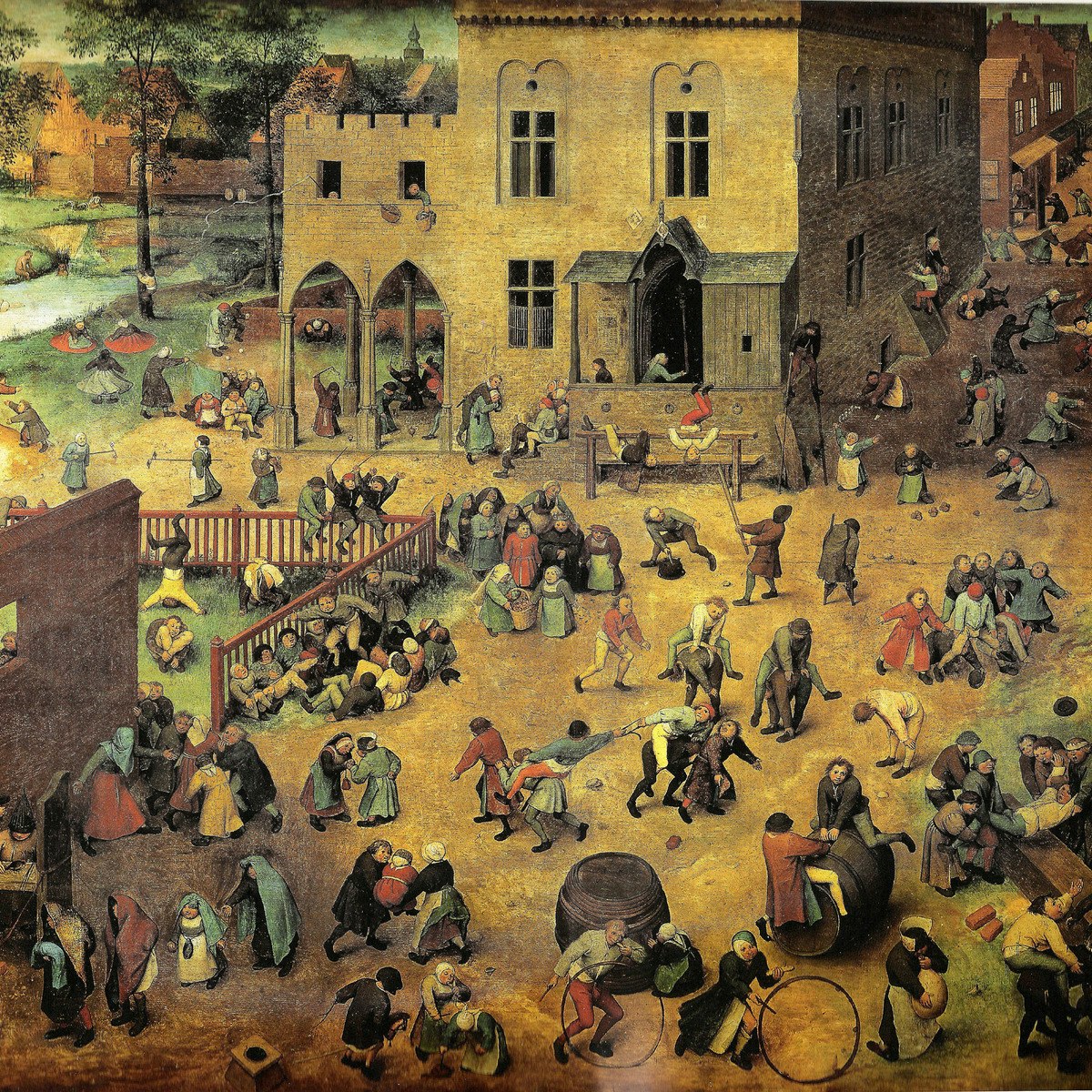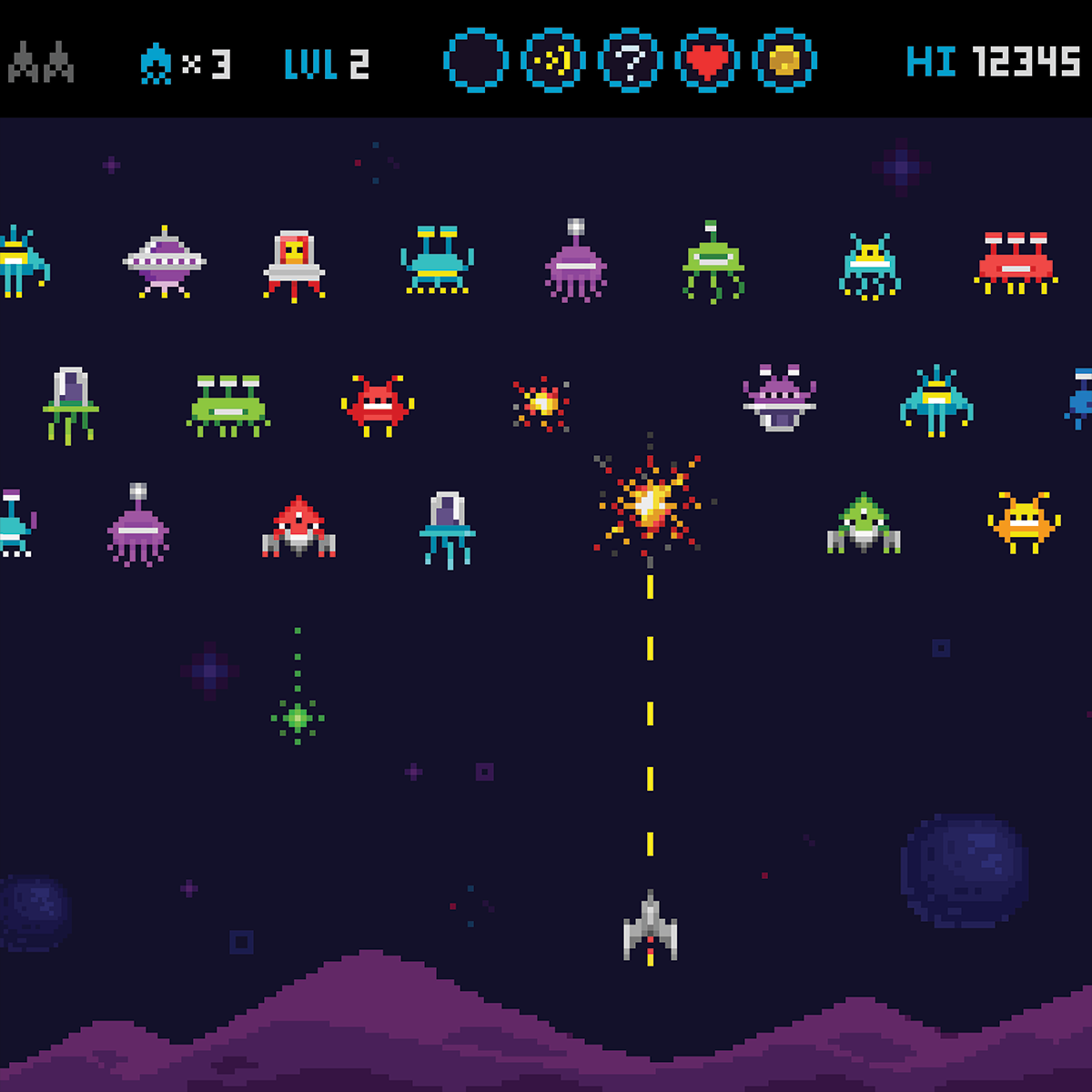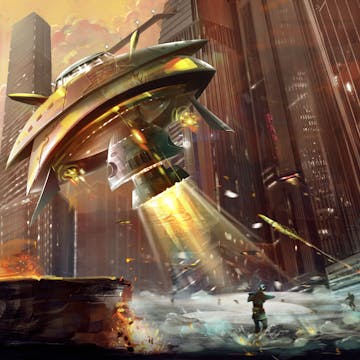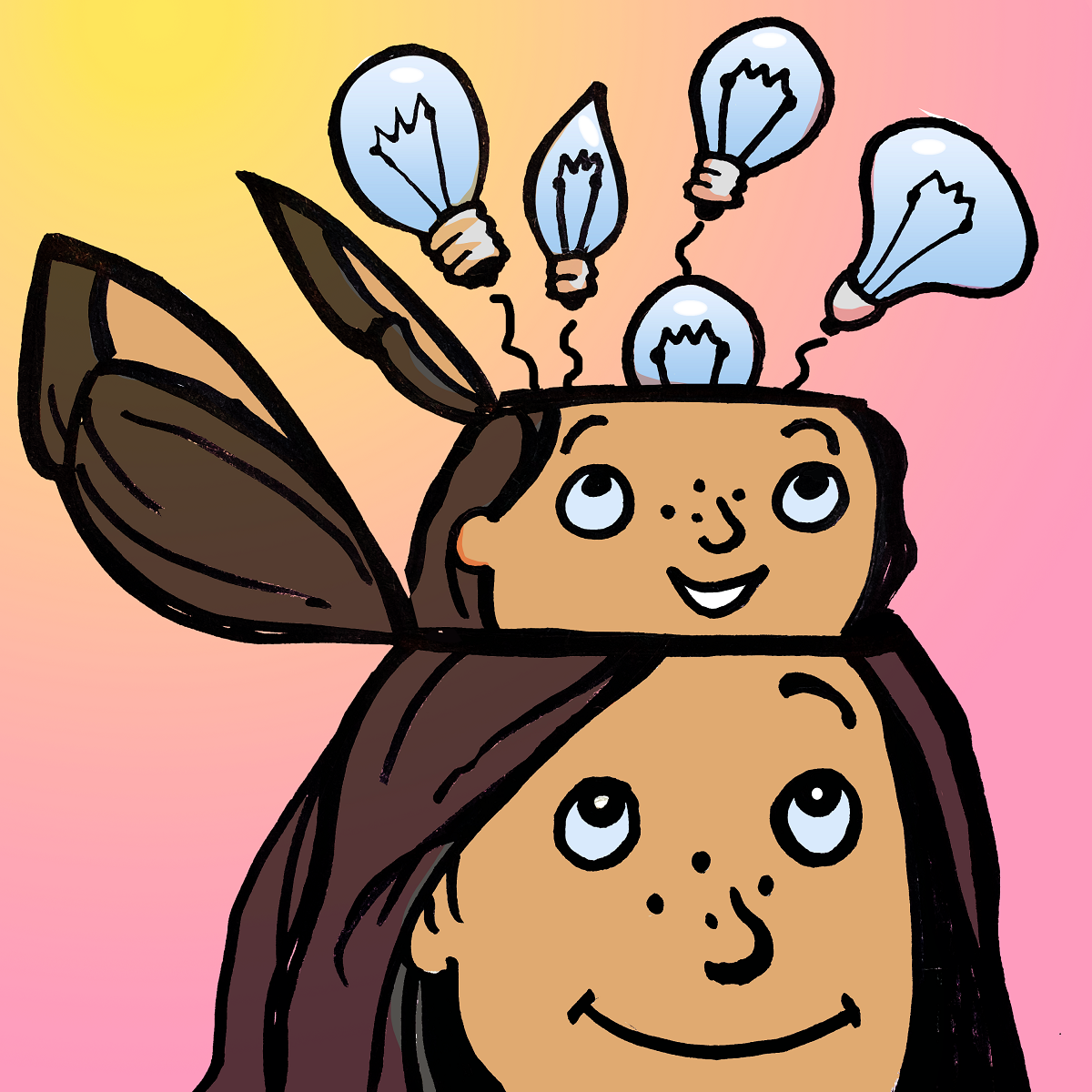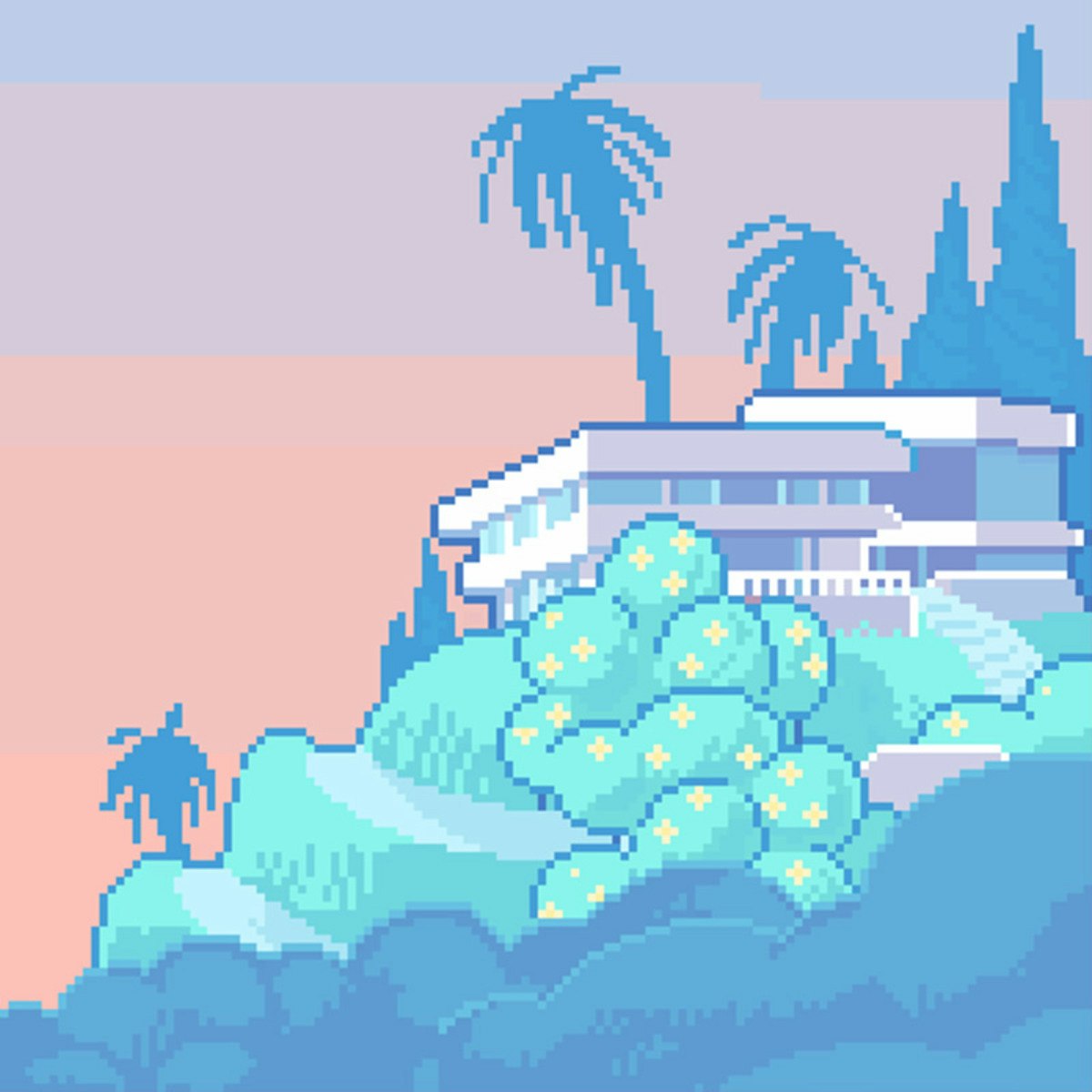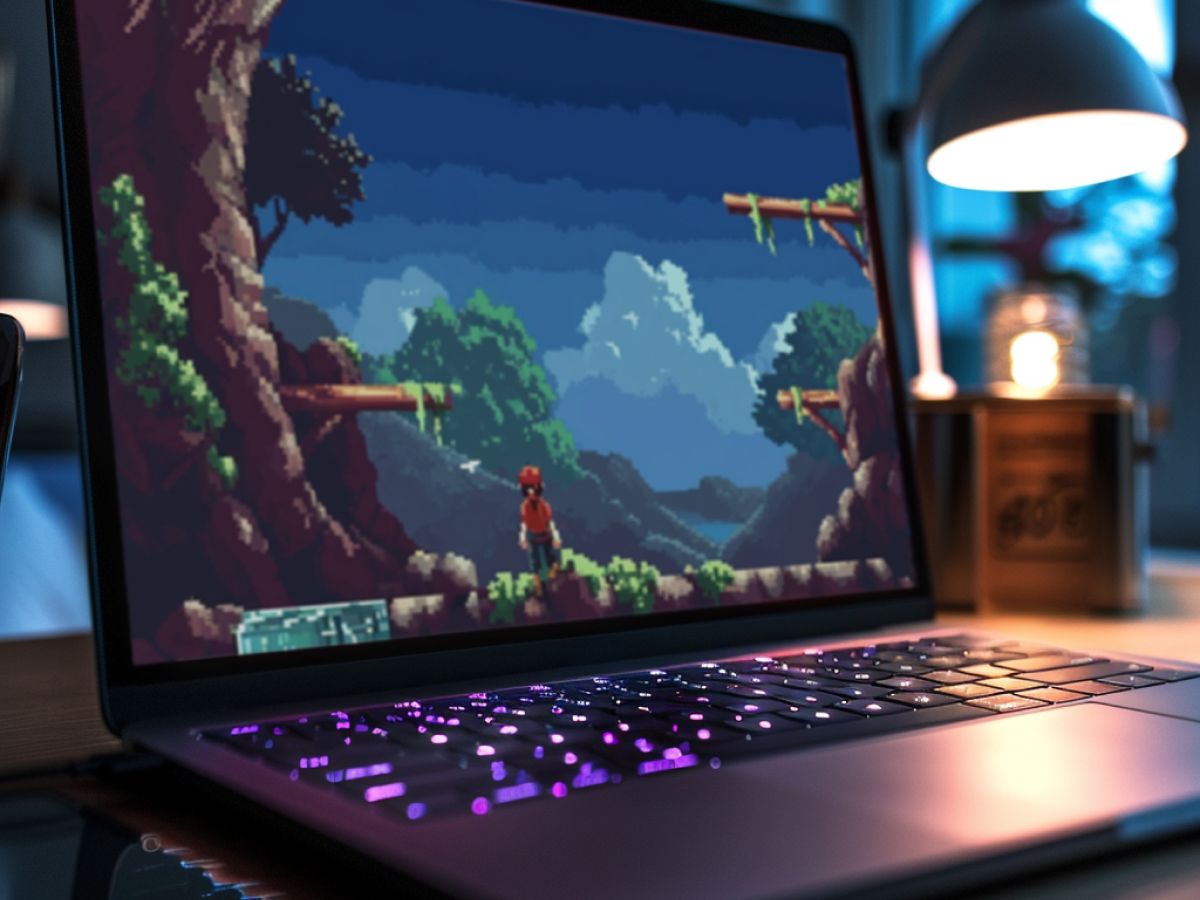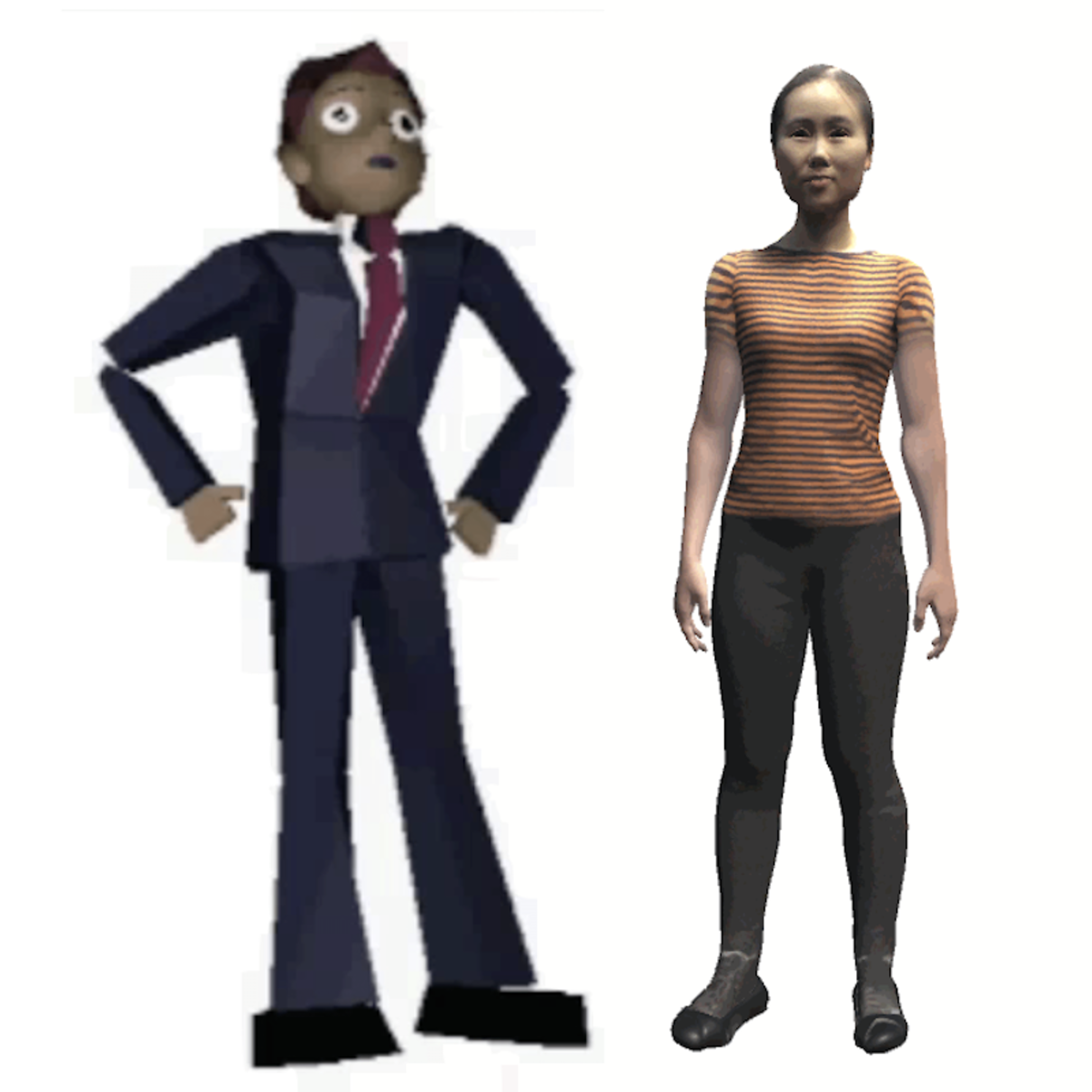Game Designer
So You Want to Be a Game Designer?
A Game Designer is the architect of play. They conceptualize and design the core elements that make a game engaging, fun, and memorable. This involves crafting the rules, structuring the gameplay loops, developing the narrative framework, and ensuring the overall player experience is compelling. Think of them as the directors of the interactive experience, guiding the vision of the game from initial concept to final product.
Working as a Game Designer can be incredibly rewarding. You get to blend creativity with logic, dreaming up fantastical worlds and intricate systems, then translating those ideas into tangible rules and mechanics. There's a unique thrill in watching players interact with something you've designed, seeing them solve puzzles you crafted or experience emotions you intended to evoke. It's a field where imagination meets technical execution, constantly pushing the boundaries of interactive entertainment.
Introduction to Game Design
What is Game Design?
Game design is the art and science of creating the rules, systems, content, and overall experience of a game. It's about defining what the player does, why they do it, and how the game responds. A Game Designer focuses on the player's journey, ensuring it is engaging, challenging, and rewarding.
This involves making crucial decisions about game mechanics (the actions players can take), game systems (how different elements interact, like scoring or combat), level design (the layout of game spaces), narrative design (how the story unfolds), and user interface (how players interact with the game's controls and information).
Ultimately, game design aims to create a specific experience for the player, whether it's excitement, relaxation, intellectual stimulation, or emotional connection. It's a highly iterative process involving conceptualization, prototyping, testing, and refinement.
Game Design vs. Game Development vs. Game Art
It's common for newcomers to confuse game design with game development or game art, but these are distinct disciplines within the broader field of game creation. Game Designers focus on the conceptual framework: the rules, mechanics, player experience, and overall vision.
Game Developers (often programmers or software engineers) take the design specifications and bring them to life using code. They build the game engine, implement the mechanics, create the tools, and ensure the game functions correctly on the target platforms. They translate the "what" and "how" of the design into functional software.
Game Artists are responsible for the visual elements of the game. This includes creating characters, environments, objects, interfaces, and visual effects. They work closely with designers and developers to ensure the art style aligns with the game's vision and enhances the player experience. While there's overlap and collaboration is constant, each role has its unique focus and required skillset.
The Goals of a Game Designer
The primary objective of a Game Designer is to create engaging and enjoyable experiences for players. This overarching goal breaks down into several key aims. Designers strive to craft clear rules and intuitive mechanics that players can easily understand and master.
They aim to balance challenge and reward, ensuring the game is difficult enough to be interesting but not so hard that it becomes frustrating. Creating compelling gameplay loops – cycles of activity that keep players invested – is another crucial goal. This might involve exploration, combat, puzzle-solving, resource management, or social interaction.
Furthermore, designers often work to evoke specific emotions or tell meaningful stories through gameplay. They meticulously tune game systems, pacing, and difficulty curves based on player feedback and data analysis to achieve the desired player experience. Ensuring the game aligns with the project's vision and target audience is paramount throughout the process.
A Brief History of the Role
The role of the Game Designer emerged alongside the video game industry itself. In the early days (1970s-80s), game creation was often handled by a single person or a very small team, where individuals wore multiple hats – designer, programmer, and artist.
As games grew more complex in the 1980s and 90s, specialization became necessary. Distinct roles began to form, with individuals focusing specifically on the design aspects – mechanics, levels, and rules. Visionaries like Shigeru Miyamoto (Mario, Zelda) and Sid Meier (Civilization) became prominent figures, recognized for their design prowess.
The rise of 3D gaming, online multiplayer, and diverse genres further solidified the need for specialized designers (level designers, systems designers, narrative designers). Today, game design is a recognized and multifaceted profession, crucial to the success of projects ranging from small indie titles to massive AAA blockbusters.
Game Designer: Key Responsibilities
Designing Mechanics, Narrative, and Systems
At its core, a Game Designer's job involves shaping the fundamental elements of play. This starts with game mechanics: the verbs of the game, the actions players can take, like jumping, shooting, talking, or building. Designers define these actions and the rules governing them.
They also often craft the narrative, weaving story elements into the gameplay. This might involve writing dialogue, plotting quests, designing characters, or building lore that enhances the player's immersion and motivation. Narrative design ensures the story and gameplay complement each other.
Finally, designers architect game systems. These are interconnected sets of rules and mechanics that govern broader aspects like the economy, combat, player progression, or AI behavior. Designing these systems requires balancing complexity, ensuring fairness, and creating opportunities for interesting player choices.
These courses introduce fundamental concepts in game design, including mechanics and systems.
Understanding how players interact strategically is also key.
Collaboration with Developers and Artists
Game design is rarely a solo endeavor; collaboration is essential. Designers work hand-in-hand with programmers (developers) to implement game mechanics and systems. They must clearly communicate their vision and specifications, ensuring the technical execution aligns with the design intent.
Similarly, close collaboration with artists is crucial. Designers provide context and requirements for characters, environments, user interfaces, and visual effects. They work with artists to ensure the visual style supports the gameplay, conveys necessary information, and creates the desired mood or atmosphere.
Effective communication, mutual respect, and the ability to give and receive constructive feedback are vital for navigating these interdisciplinary relationships. Designers often act as a bridge, ensuring that code, art, and design harmonize to create a cohesive player experience.
Prototyping and Iteration
Ideas are plentiful, but proving their effectiveness requires testing. Game Designers rely heavily on prototyping – creating simple, playable versions of game ideas or mechanics to test their core concepts quickly. Prototypes can range from paper sketches to basic digital mockups or coded demos.
The goal of prototyping isn't perfection, but learning. Does the mechanic feel good? Is the rule clear? Is the core loop engaging? Based on testing and feedback (from the team or players), designers iterate on the design. Iteration involves refining, changing, or sometimes completely discarding ideas based on prototype results.
This cycle of prototyping, testing, and iterating is fundamental to game design. It allows designers to validate assumptions, identify problems early, and gradually shape the game into a polished and enjoyable experience. Many successful games go through dozens, if not hundreds, of iterations.
These courses cover the practical aspects of building game prototypes using common engines.
Understanding Player Psychology and Engagement
Great game design taps into player psychology. Designers need to understand what motivates players, how they learn, what captures their attention, and what makes an experience feel rewarding. Concepts like risk/reward, challenge/skill balancing, feedback loops, and player motivation models (like intrinsic vs. extrinsic motivation) are essential tools.
Designers use psychological principles to craft engaging experiences. This might involve designing satisfying feedback for player actions, creating a sense of progression and mastery, fostering curiosity and exploration, or building compelling social dynamics in multiplayer games.
Understanding player psychology also helps in designing for different player types and managing player frustration. By anticipating how players might think and feel, designers can create more intuitive interfaces, fairer challenges, and ultimately, more engaging and satisfying games.
These courses explore the psychological aspects relevant to game design.
Books like these delve deeper into the theory and practice of engaging design.
Essential Skills for Game Designers
Technical Proficiency
While game design isn't purely programming, a degree of technical proficiency is often required or highly beneficial. Understanding the capabilities and limitations of game engines like Unreal Engine or Unity is crucial for designing feasible mechanics and systems.
Many design roles involve using visual scripting tools (like Unreal's Blueprints) to prototype ideas or even implement gameplay features directly. Basic scripting knowledge (e.g., in Python, Lua, or C#) can also be a significant advantage, enabling designers to create more complex prototypes and communicate more effectively with developers.
Familiarity with design documentation tools, spreadsheets for balancing data, version control systems (like Git), and potentially basic 3D modeling or level editing software further enhances a designer's toolkit. Technical skills empower designers to better understand implementation challenges and contribute more directly to the development process.
These courses cover visual scripting and game engine fundamentals, valuable technical skills for designers.
Creative and Conceptual Skills
Creativity is the lifeblood of game design. Designers must generate original ideas for game concepts, mechanics, narratives, and worlds. This involves imagination, brainstorming, and the ability to think outside conventional boundaries.
Conceptual skills involve translating abstract ideas into concrete designs. This includes visualizing gameplay, structuring game flow, designing levels that guide and challenge players (level design), and creating compelling characters and stories (narrative design).
Skills like storyboarding, world-building, character development, and understanding different game genres are essential. A strong sense of aesthetics, pacing, and player experience helps designers craft engaging and memorable games. Creativity fuels the initial spark, while conceptual skills shape it into a workable design.
These courses focus on nurturing creativity and specific creative skills like writing and visual effects.
Communication and Collaboration (Soft Skills)
Game development is a team sport, making soft skills indispensable for designers. Clear communication is paramount – designers must articulate complex ideas effectively to artists, programmers, producers, and other stakeholders through verbal explanations, written documents, diagrams, and presentations.
Active listening is equally important for understanding feedback, technical constraints, and artistic input from team members. Collaboration involves working constructively within a team, respecting different perspectives, and contributing positively to a shared goal.
Project management skills, like time management, organization, and understanding development pipelines, are also valuable. Designers often need to manage their own tasks, track progress, and adapt to changing project requirements, making strong organizational and interpersonal skills essential for success.
Analytical and Problem-Solving Skills
Game design involves constant problem-solving. Designers must analyze gameplay issues, identify the root causes of problems (e.g., a mechanic being confusing, a level being too difficult), and devise creative solutions.
Strong analytical skills are needed to interpret data from playtesting sessions and player analytics. Designers must be able to objectively assess feedback, understand player behavior patterns, and use that information to make informed decisions about balancing, pacing, and feature adjustments.
Critical thinking allows designers to evaluate their own ideas, anticipate potential problems, and deconstruct existing games to understand why they succeed or fail. A systematic, analytical approach helps refine designs and ensure the final game meets its intended goals.
This book offers practical insights into the design process, including analysis and problem-solving.
Formal Education Pathways
Relevant University Degrees
While not always mandatory, a formal education can provide a strong foundation for a game design career. Many designers enter the field with bachelor's degrees in relevant areas. Computer Science degrees offer deep technical understanding, valuable for systems design and communicating with programmers.
Degrees in Interactive Media, Digital Media, or Game Design itself offer more specialized curricula focused directly on design principles, game engines, prototyping, and industry practices. Creative fields like Fine Arts, Animation, Film, or Writing can also be relevant, particularly for roles emphasizing narrative or visual aspects of design.
Regardless of the specific major, coursework developing critical thinking, problem-solving, communication, and teamwork skills is highly beneficial. Many programs also encourage or require portfolio development, which is crucial for demonstrating practical skills to potential employers.
Specialized Game Design Programs
Beyond general degrees, numerous universities and specialized schools offer programs focused explicitly on game design and development. These programs provide targeted training in areas like game mechanics, level design, systems design, narrative design, player psychology, prototyping tools, and industry workflows.
These specialized programs often feature instructors with industry experience and may offer opportunities for internships or collaborations with game studios. They typically emphasize hands-on projects and portfolio development, preparing students with practical skills and tangible work samples.
Choosing a specialized program requires research. Look into the curriculum details, faculty credentials, industry connections, alumni success rates, and the specific focus of the program (e.g., technical design, narrative design, indie development) to ensure it aligns with your career aspirations.
Many universities offer excellent game design programs or related courses. OpenCourser features courses from top institutions that can supplement or form the basis of your learning.
Graduate Studies and Research
For those interested in pushing the boundaries of game design theory, exploring experimental forms of interaction, or pursuing academic careers, graduate studies can be a valuable path. Master's and PhD programs in fields like Human-Computer Interaction (HCI), Digital Media, or specific Game Studies programs allow for deeper research and specialization.
Graduate research might focus on areas like artificial intelligence in games, player psychology, procedural content generation, serious games (games for education or training), virtual/augmented reality interaction design, or the cultural impact of games.
A graduate degree can open doors to research positions in industry labs, specialized design roles requiring deep expertise, or academic positions teaching and researching game design. It's a path for those passionate about advancing the field's knowledge base.
This course touches on serious games, an area often explored in graduate research.
Portfolio Development During Education
Regardless of the educational path chosen, building a strong portfolio is arguably the most critical factor for landing a game design job. Formal education provides the time, resources, and guidance to develop portfolio pieces, but students must proactively seize these opportunities.
Class projects, game jams (timed game creation events), personal projects, and mods for existing games can all contribute to a portfolio. Focus on showcasing a range of design skills: mechanics design, level layouts, system documentation, narrative concepts, and prototypes.
Document your process clearly: explain your design goals, the problems you encountered, the solutions you implemented, and what you learned. A portfolio isn't just a collection of finished products; it's evidence of your design thinking, problem-solving abilities, and practical skills. Start building it early and refine it continuously throughout your education.
This course specifically focuses on portfolio building for game designers.
Self-Directed and Online Learning
Skill-Building Through Online Courses
Online learning platforms offer incredible flexibility and accessibility for aspiring Game Designers, whether supplementing formal education or forging an entirely self-directed path. Platforms like OpenCourser aggregate thousands of courses covering virtually every aspect of game design and related skills.
You can find modular courses focusing on specific skills like level design, narrative writing, systems balancing, player psychology, or proficiency in engines like Unity or Unreal. This allows learners to tailor their education to specific interests or career goals, filling knowledge gaps as needed.
Online courses are particularly valuable for career changers who need to acquire new skills efficiently while potentially juggling existing responsibilities. Look for courses with hands-on projects, experienced instructors, and positive reviews to maximize learning effectiveness. Building foundational knowledge through structured online learning can be a powerful first step.
These comprehensive online courses cover a broad range of game design and development topics.
Leveraging Open-Source Tools and Game Engines
The availability of powerful, free, and open-source tools has democratized game development significantly. Engines like Godot offer robust capabilities comparable to commercial engines, without licensing fees. Learning these tools through online tutorials and documentation provides practical, hands-on experience.
Other open-source software for art (like Blender for 3D modeling, Krita for 2D art), audio editing (Audacity), and project management can round out a self-learner's toolkit. Engaging with the communities around these tools often provides support and learning resources.
Using these freely available tools allows independent learners and those on a budget to build projects, create prototypes, and develop portfolio pieces without significant financial investment, focusing instead on honing their design and technical skills.
These courses teach game development using accessible engines like Godot and Scratch.
Community-Driven Learning and Game Jams
Learning doesn't happen in a vacuum. Engaging with online game development communities (forums, Discord servers, subreddits) provides invaluable support, feedback, and knowledge sharing. Experienced designers and developers often share insights and answer questions from newcomers.
Game jams – events where participants create a game from scratch within a short timeframe (often 48-72 hours) based on a theme – are fantastic learning experiences. They force rapid prototyping, quick decision-making, and collaboration (if working in a team).
Participating in game jams is an excellent way to build portfolio pieces quickly, experiment with new ideas, learn new tools, network with other developers, and experience a compressed version of the game development cycle. Many successful indie games started as game jam projects.
Balancing Theory with Hands-On Projects
Effective self-directed learning requires balancing theoretical knowledge with practical application. Reading design books, watching lectures, and taking courses builds foundational understanding, but true mastery comes from doing.
Actively apply what you learn by working on personal projects. Start small – perhaps recreating a simple classic game mechanic, designing a single level, or building a small prototype around a core idea. These projects solidify understanding and provide tangible portfolio evidence.
Don't be afraid to experiment and fail; failure is a crucial part of the learning process in design. The goal is to continuously bridge the gap between understanding design principles and being able to implement them effectively in actual game projects.
Consider these books for a deeper dive into game design theory and practice.
Career Progression in Game Design
Entry-Level Roles
Breaking into the game design field often starts with entry-level positions that provide foundational experience. A common entry point is the Quality Assurance (QA) Tester role. QA Testers play games extensively to find bugs and provide feedback on gameplay, offering exposure to the development process and design elements.
Other potential starting points include Junior Game Designer, Assistant Designer, or Level Design Intern roles. These positions typically involve supporting senior designers by documenting features, implementing content using game engines, balancing simple systems, or building parts of levels under supervision.
Some designers might also start in related fields like community management, technical writing, or even production assistance, gaining industry knowledge and looking for opportunities to transition into design. Building a strong portfolio showcasing design skills is crucial for securing these initial roles.
This course provides guidance specifically on entering the video game industry.
Mid-Career Specialization
As designers gain experience, they often specialize in specific areas of game design. A Level Designer focuses on crafting engaging game environments, layouts, and encounters. A Systems Designer architects and balances complex game mechanics, economies, or progression systems.
A Narrative Designer concentrates on storytelling, character development, dialogue, and integrating the narrative seamlessly with gameplay. A UI/UX Designer for games focuses on creating intuitive interfaces and ensuring a smooth player experience (UX Design is a closely related field).
Other specializations might include Combat Designer, Monetization Designer (especially for free-to-play games), or Technical Designer (bridging design and programming). Mid-career designers typically take ownership of significant features or areas of the game, mentoring junior staff and contributing more strategically to the project.
Leadership Roles
With significant experience and proven expertise, designers can advance into leadership positions. A Lead Designer oversees a team of designers, guiding the design direction for a specific project or feature area. They are responsible for maintaining design consistency, mentoring team members, and collaborating with leads from other disciplines (art, programming).
A Creative Director holds a higher-level vision for one or multiple projects, guiding the overall creative direction, including gameplay, narrative, and aesthetics. They often play a key role in pitching game concepts and ensuring the final product aligns with the studio's strategic goals.
Other senior roles might include Principal Designer (a highly experienced individual contributor with deep expertise) or Design Director (overseeing design across an entire studio or franchise). These roles require strong leadership, communication, strategic thinking, and a deep understanding of the game development process and market.
Freelance and Independent Paths
Not all game design careers follow a traditional studio hierarchy. Many experienced designers choose to work freelance, offering their expertise to various studios on a contract basis. This path offers flexibility and variety but requires strong self-discipline, networking skills, and business acumen.
Alternatively, some designers pursue the independent (indie) path, founding their own small studios or working in tiny teams to create and publish their own games. This offers maximum creative control but involves wearing many hats (design, business, marketing, etc.) and carries significant financial risk.
Both freelance and indie routes require a strong portfolio, industry connections, and often, a proven track record of successful projects. They represent alternative career trajectories for designers seeking autonomy or wanting to bring their unique visions to life outside the constraints of larger studio structures.
This course explores entrepreneurial aspects relevant to indie development.
Industry Trends Impacting Game Designers
Emerging Technologies: VR, AR, AI
Technological advancements continuously reshape the landscape of game design. Virtual Reality (VR) and Augmented Reality (AR) present unique design challenges and opportunities, requiring designers to think spatially and consider new interaction paradigms for immersive experiences.
Artificial Intelligence (AI) is increasingly used in various aspects of game development. AI can drive more sophisticated Non-Player Character (NPC) behaviors, personalize player experiences, and assist in procedural content generation (creating game worlds or elements algorithmically). According to one analysis, AI enables NPCs to learn from player actions, potentially creating more dynamic gameplay.
Designers need to stay abreast of these technologies, understanding their potential and limitations to innovate and create novel gameplay experiences. Proficiency or familiarity with designing for VR/AR or leveraging AI tools is becoming an increasingly valuable skillset.
These courses explore designing for VR and using AI in game development.
Shift Toward Live-Service and Mobile Games
The industry has seen a significant shift towards Games as a Service (GaaS) or "live-service" models. Unlike traditional single-purchase games, live-service titles (often free-to-play or subscription-based) are designed for long-term engagement through regular updates, new content, and ongoing events.
This requires designers to focus on retention mechanics, monetization strategies, long-term progression systems, and planning content roadmaps. Data analysis becomes crucial for understanding player behavior and optimizing the ongoing experience. The GaaS market is substantial, expected to reach USD 16.01 billion by 2030.
Mobile gaming also continues to dominate the market in terms of player numbers and revenue share. Designing for mobile involves specific considerations like touch controls, shorter play sessions, performance optimization for diverse devices, and different monetization models. Designers skilled in live-service or mobile game design are in high demand.
These courses touch upon mobile game development and monetization strategies.
Diversification of Gaming Audiences
The stereotypical image of a gamer is outdated. Today's gaming audience is incredibly diverse, spanning all ages, genders, ethnicities, and backgrounds. Research shows a significant portion of gamers are women and older adults, and mobile gaming has broadened the audience considerably. For instance, a Think with Google article highlights that 46% of gamers globally identify as female.
This diversification presents both opportunities and responsibilities for game designers. There's a growing demand for games that reflect diverse experiences and perspectives through inclusive narratives, characters, and themes. Designers must consider accessibility, ensuring games can be enjoyed by players with varying abilities.
Understanding and designing for a broader audience requires empathy, research, and a commitment to representation. Games that resonate with diverse player bases can achieve wider reach and cultural impact. Studies show that most gamers, especially younger generations, value diversity in the games they play.
Sustainability and Ethical Considerations
As the industry matures, discussions around sustainability and ethical practices are gaining prominence. This includes environmental sustainability, considering the energy consumption of game development and play, especially with large data centers supporting cloud gaming and live services.
More pertinent to designers are ethical considerations within game design itself. This involves responsible monetization practices (avoiding predatory mechanics), promoting healthy play habits (addressing game addiction concerns), ensuring fair treatment of player data, and fostering positive, non-toxic online communities.
Designers play a key role in shaping ethical player experiences. Awareness of these issues and a commitment to designing responsibly are becoming increasingly important aspects of the profession, impacting both studio reputation and player trust.
Ethical Challenges in Game Design
Monetization Models and Player Well-being
The rise of free-to-play and live-service games has introduced complex ethical challenges related to monetization. While microtransactions can fund ongoing development, certain practices like "loot boxes" (randomized rewards) have faced scrutiny for resembling gambling and potentially exploiting vulnerable players.
Game designers are often involved in creating the systems that drive monetization. They face the ethical dilemma of balancing revenue generation with fair value and player well-being. Predatory or overly aggressive monetization can harm player trust and lead to negative experiences, regulatory backlash, and public criticism.
Designing ethical monetization involves transparency, providing clear value for purchases, avoiding "pay-to-win" mechanics that unbalance gameplay, and respecting player autonomy. It requires careful consideration of the psychological impact of different models on player behavior and spending habits.
This course explores gamification, which shares some psychological underpinnings with monetization design.
Representation and Inclusivity
How games represent different genders, ethnicities, sexual orientations, abilities, and cultures carries significant weight. Historically, the industry has often defaulted to specific character archetypes, leading to underrepresentation or stereotypical portrayals of many groups.
Designers, particularly narrative designers and character designers, have a responsibility to strive for authentic and respectful representation. This involves researching diverse perspectives, avoiding harmful stereotypes, and creating characters and stories that reflect the richness of human experience. As audiences diversify, players increasingly seek representation that resonates with them.
Inclusivity also extends to game mechanics and accessibility. Designing games that accommodate players with different physical or cognitive abilities ensures a wider audience can enjoy the experience. Ethical design means actively working to make game worlds and narratives more inclusive and welcoming for everyone.
Addictive Design Mechanisms
Games are designed to be engaging, but there's a fine line between engaging and potentially addictive. Certain design mechanics, such as variable reward schedules (like those in loot boxes), appointment mechanics (requiring players to log in at specific times), and endless progression systems, can sometimes foster compulsive behavior.
Designers must be mindful of the potential for their designs to contribute to unhealthy play patterns. Ethical game design involves promoting engagement through intrinsic fun, skill mastery, and meaningful experiences, rather than relying solely on mechanics that exploit psychological vulnerabilities.
This involves careful balancing, providing players with control over their playtime, and avoiding mechanics explicitly designed to maximize time spent or encourage compulsive spending without commensurate value or enjoyment. Understanding player psychology is key not only for engagement but also for responsible design.
Data Privacy in Player Analytics
Modern games, especially online and live-service titles, collect vast amounts of player data. This data is invaluable for designers to understand player behavior, balance gameplay, identify issues, and personalize experiences. However, the collection and use of this data raise ethical concerns about privacy.
Designers must work within legal frameworks (like GDPR) and ethical guidelines regarding data collection. This includes being transparent with players about what data is collected and how it's used, ensuring data security, and using analytics responsibly to improve the player experience, not exploit players.
Ethical use of player data means focusing on improving the game and respecting player privacy, rather than using data for overly aggressive targeted monetization or manipulative practices. Designers should advocate for data practices that prioritize player trust and well-being.
Global Opportunities for Game Designers
Regional Industry Hubs
The game development industry is global, but certain regions have emerged as major hubs. North America (particularly the US West Coast and cities like Montreal), Europe (UK, France, Germany, Nordic countries), and East Asia (Japan, South Korea, China) boast high concentrations of established studios, publishers, and talent.
Each hub often has its own strengths and characteristics. For instance, Japan is renowned for console games and specific genres like JRPGs, while North America has a strong AAA console/PC market and significant mobile development. Europe features a mix of large studios and a vibrant indie scene.
Emerging hubs in areas like Eastern Europe, Southeast Asia, and Latin America are also growing rapidly, offering new opportunities. Understanding the landscape of these global hubs can help designers target job searches or identify potential markets for independent projects.
Cultural Localization Needs
As games reach global audiences, localization becomes crucial. This goes beyond simple translation; it involves adapting game content, narratives, visuals, and sometimes even mechanics to resonate with different cultural contexts and avoid unintentional offense.
Game designers, especially those working on narrative or world-building, may be involved in the localization process. They might need to provide context for translators, adjust content that doesn't translate well culturally, or even design systems that accommodate regional differences (e.g., varying monetization regulations).
Understanding cultural nuances and designing with localization in mind from the outset can streamline the process and lead to a more successful global launch. Designers with cross-cultural awareness or language skills can be particularly valuable in global development environments.
Remote Work and Distributed Teams
The nature of game development, particularly roles like design that can often be done digitally, lends itself well to remote work. Many studios, from small indies to large AAA companies, now operate with fully remote or hybrid models, employing talent from around the world.
This trend opens up opportunities for designers regardless of their physical location, allowing them to work for studios in different cities or countries without relocating. However, remote work requires strong self-discipline, excellent communication skills (especially written), and proficiency with online collaboration tools.
Working effectively in distributed teams across different time zones requires careful coordination and a proactive approach to communication. While offering flexibility, remote design roles demand a high level of organization and professionalism.
Visa and Immigration Considerations
For designers seeking opportunities in international hubs, navigating visa and immigration requirements is a practical necessity. Securing work visas often depends on factors like having a job offer from a sponsoring company, relevant educational qualifications, and demonstrable professional experience.
Visa processes can be complex and vary significantly by country. Some countries may have specific visa categories for skilled workers in tech or creative industries. Aspiring international designers should research the requirements for their target countries early on.
Studios experienced in hiring international talent can often provide assistance with the visa process, but understanding the general requirements and timelines is crucial for planning an international career move.
Frequently Asked Questions (Career Focus)
What are typical salary ranges for Game Designers?
Salaries for Game Designers vary widely based on experience, location, studio size, specialization, and the specific role. Entry-level positions like Junior Designer or QA Tester typically offer lower starting salaries, while experienced Lead Designers or Creative Directors command significantly higher compensation.
Geographical location plays a major role; salaries in major industry hubs (like California or Seattle) tend to be higher than in regions with a lower cost of living, but the cost of living itself must be factored in. Data from sources like the U.S. Bureau of Labor Statistics (often classifying designers under related categories like Software Developers or Multimedia Artists and Animators) or industry-specific salary surveys can provide general benchmarks, but precise figures fluctuate.
Generally, progression from junior to mid-level, senior, and lead roles corresponds with substantial salary increases. Specialized skills (e.g., systems design, monetization) in high demand can also positively impact earning potential.
Can I break into the industry without a formal degree?
Yes, it is possible to become a Game Designer without a formal university degree, but it often requires significant dedication and a strong portfolio. The games industry tends to value demonstrable skills and practical experience above specific academic credentials.
Self-taught designers can leverage online courses, tutorials, game jams, and personal projects to build the necessary skills and create compelling portfolio pieces. Contributing to indie projects or creating mods for existing games can also demonstrate practical ability.
However, a degree can provide structured learning, networking opportunities, and sometimes easier access to internships or entry-level positions. Without a degree, a truly outstanding portfolio showcasing strong design thinking, problem-solving, and technical proficiency becomes even more critical to stand out to employers.
This book provides guidance on navigating a game development career.
Portfolio vs. Formal Education: What matters more?
For most game design roles, the portfolio typically carries more weight than formal education alone. Employers want to see tangible proof of your design skills, creativity, problem-solving abilities, and understanding of game development processes.
A strong portfolio showcasing well-documented projects, thoughtful design choices, and relevant skills (level design, system design, prototyping) is often the deciding factor in hiring decisions. It demonstrates practical capability in a way a degree certificate cannot.
However, formal education provides the foundational knowledge, structured learning environment, and dedicated time to build that portfolio. Education and portfolio are not mutually exclusive; ideally, education facilitates the creation of a strong portfolio. While a portfolio might open the door, the knowledge gained through education helps you succeed once inside.
Are there jobs for Game Designers outside the entertainment industry?
Yes, the skills developed in game design are transferable to other industries. The field of Gamification applies game mechanics and design principles to non-game contexts like education, corporate training, marketing, healthcare, and fitness apps to increase engagement and motivation.
User Experience (UX) design for software applications and websites shares many principles with game design, focusing on user interaction, flow, and creating intuitive interfaces. Simulation design for training (e.g., flight simulators, medical training simulations) also utilizes game design skills.
Experience designers working on theme park attractions, interactive installations, or educational exhibits might also leverage game design principles. The ability to design engaging systems, understand user psychology, and prototype interactive experiences is valuable in many fields beyond entertainment games.
What is the work-life balance like for a Game Designer?
Work-life balance in the game industry, including for designers, can be challenging and varies significantly between studios and projects. While many studios strive for sustainable practices, the industry is known for periods of intense work, often referred to as "crunch," especially leading up to project milestones or release dates.
Crunch periods can involve long hours, including evenings and weekends, potentially impacting personal life and well-being. Factors influencing work-life balance include studio culture, project management effectiveness, funding pressures, and individual team dynamics.
While conditions have been improving in some parts of the industry due to increased awareness and advocacy, potential designers should be realistic about the possibility of demanding work schedules at times. Researching specific studio cultures and asking questions about work-life balance during interviews is advisable.
This book touches on industry work conditions.
How might AI impact future job prospects for Game Designers?
Artificial Intelligence is poised to significantly impact game design roles, likely acting as both a tool and a potential disruptor. AI tools can automate or assist with tasks like content generation (e.g., level layouts, textures, basic narrative elements), playtesting, balancing, and data analysis, potentially increasing efficiency.
This could allow designers to focus more on higher-level conceptual work, creativity, player experience refinement, and complex system design. However, it might also change the required skillset, demanding familiarity with AI tools and potentially automating some lower-level design tasks. Industry experts suggest AI will automate key processes but also create new roles like AI Game Designer.
While AI is unlikely to completely replace the creative and empathetic aspects of game design, adaptability will be key. Designers who learn to leverage AI effectively as a tool to enhance their creativity and productivity will likely be best positioned for future success. The focus may shift from manual implementation to guiding AI systems and curating their output.
Becoming a Game Designer is a journey that blends creativity, technical skill, analytical thinking, and a deep understanding of player experience. It's a challenging but potentially immensely rewarding field for those passionate about crafting interactive worlds and engaging gameplay. Whether through formal education or self-directed online learning via resources like OpenCourser, building a strong portfolio and continuously honing your skills are key to success in this dynamic and evolving industry.

